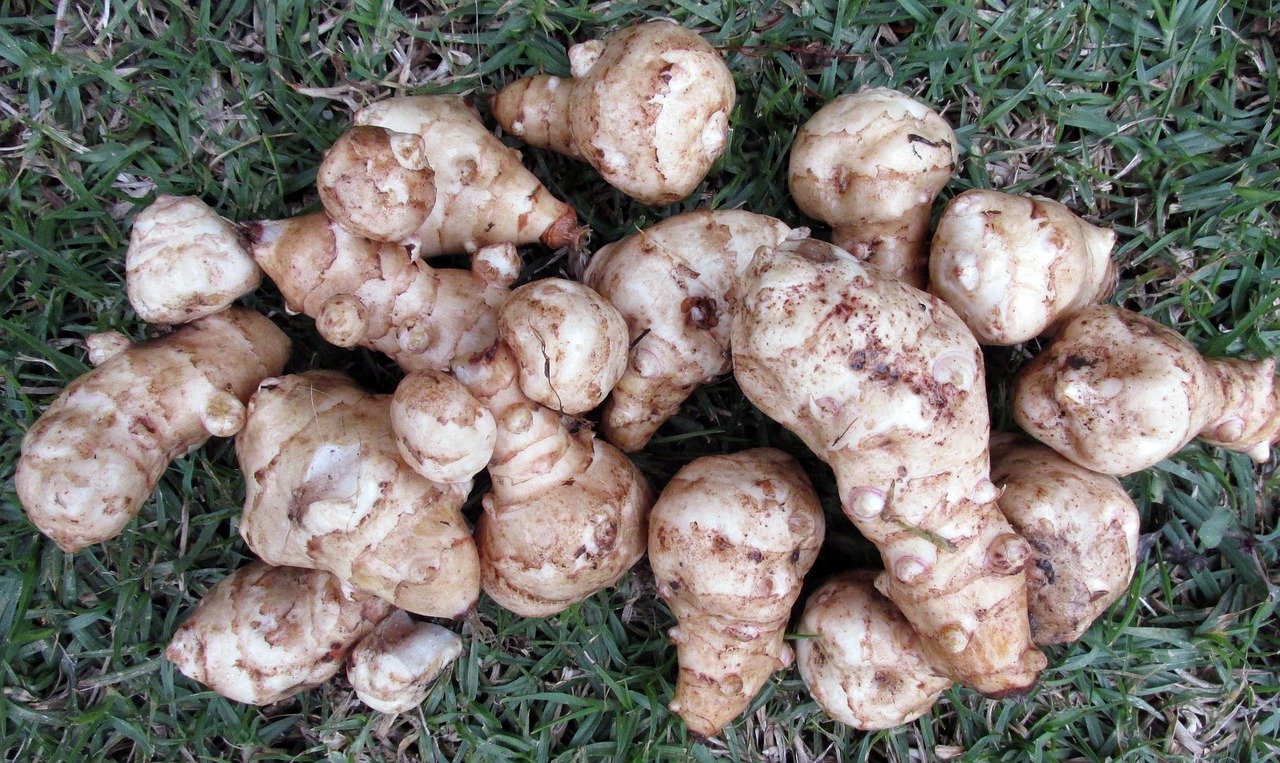You do not have to become an expert to tell someone that the best way to remain healthy and fit is by eating healthy food. Healthy foods not only mean a balanced diet but also organically grown foods. If you are eating foods grown using chemical fertilizer and pesticides, insecticides, then the harmful chemicals and toxins present in the foods will go inside your body. The result is various health complications including heart diseases and cancer.
Whether you are a hobbyist gardener or a small farmer who makes money selling produce, you can try Jerusalem artichokes for organic gardening. These tubers are diseases resistant, thus eliminating the need for harsh chemicals. If you feed these plants well with organic fertilizer, you will have a high yield.
Jerusalem artichokes are tubers, and perhaps the best alternative to potatoes. You can grow this vegetable all through the year. These tubers are low in starch and calorie compared to other tubers like potatoes and sweet potatoes. Jerusalem artichokes are suitable for our health and have a very nice visual appeal making them beautiful for our eyes. The artichokes have a high nutritional value as they are rich in vitamin c, fiber, minerals, and have low cholesterol and saturated fats. The plants have proved their usefulness in weight loss and ensuring good health. Organic farming of Jerusalem artichokes retains its nutritional value and makes it healthier. The Jerusalem artichoke is known to produce tubers close to the ground, and The crop is a perennial one.
Artichokes are grown on fertile soil and require water during the growing period. The soil has to be enriched well with organic fertilizers as well as compost. This is done by digging the soil to a depth of around one foot and then filling it with organic fertilizers and compost. Fish manure is regarded as an effective organic fertilizer to use in growing the artichoke. The most preferred season is Autumn, and the plantation is mostly done in April.
Planting of artichokes may be done in two ways. You may use either suckers or seeds. The suckers grow on the side of the plant and can be planted separately. They are best planted between February and April. Also, it’s good to note that the parent plant producing the suckers should be three years or older. When using seeds to plant, you must obtain them from nurseries, and you need to check whether the seeds come from organic artichokes.
The Jerusalem artichokes require sunlight to grow well. The flower stem grows very tall and is exposed to the risk of getting blown away. Hence, you may be required to install a partial shelter for blocking the strong winds when exposing the plant to the sun.
The organic Jerusalem artichokes require a dry environment in winters and should be protected from frost. The straw is utilized for this purpose. For people who are in hot climates, it’s good to begin by growing seeds indoors at a preferably cooler temperature to achieve early harvesting. Artichoke plants can live for close to twelve years. But for better and quality vegetables, the artichokes need regular replacement after 5 to 6 years. Harvesting of artichokes isn’t done in the initial year. When planting is done by March to April, the crop is then harvested the following year by November.
The plant thrives well in warm climates by growing faster. In the cold regions, the plant can be grown indoors for sometime before taking it outside or use cold flames to shorten the growing period. The seeds are planted not more in-depth than a quarter-inch to ensure they push through the soil easily when germinating. Also, the artichoke seeds need to be planted in the soil with temperatures between seventy to eighty degrees Fahrenheit. For indoor germinating, consider using a propagation dome as it shortens the germination to less than 14 days.
The Jerusalem artichokes require a pH level of around 6.5 to 8.0, meaning very weak acidic or very weak basic. To achieve such a ph you can use limestone to moderate your pH. When growing artichokes, it’s good to equip yourself with the necessary organic pesticide although the plant is rarely affected by pests and diseases. For those who start their artichokes indoors, it’s advisable to acclimate them to the outdoor temperature. Just harden off your crops. Always ensure you have given enough space to grow, around 16 inches to 24 inches between each plant.
The best time to harvest your artichoke is when it is evenly green in color and has not opened yet. At this time, it has the best quality and tenderness. Harvesting is done by clipping off your crop at the bottom.

I like artichokes, therefore, I might consider growing this vegetable myself.